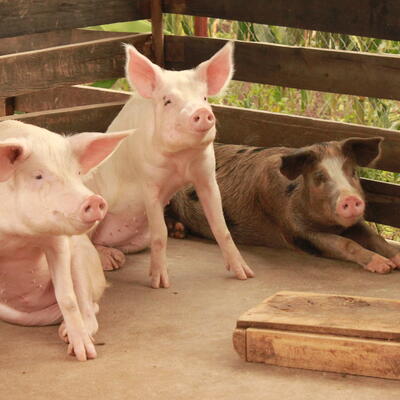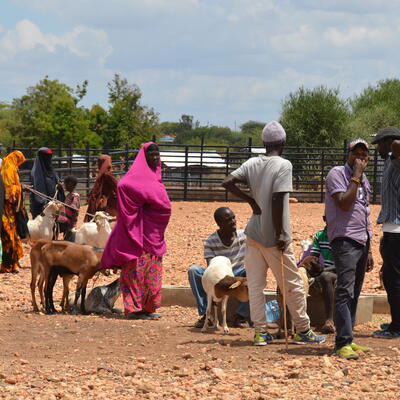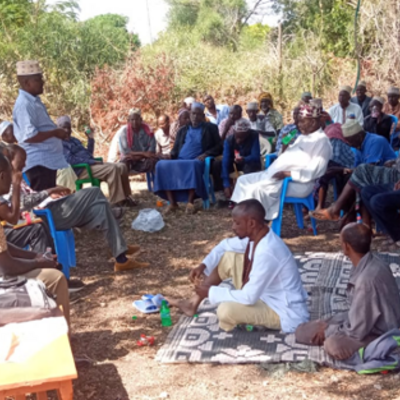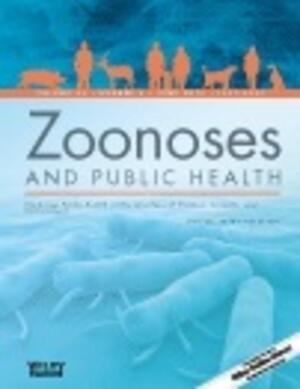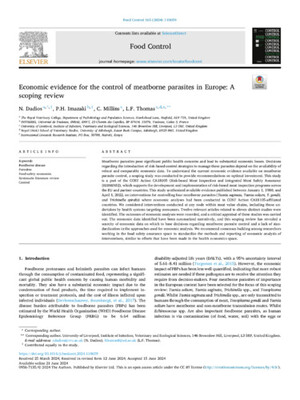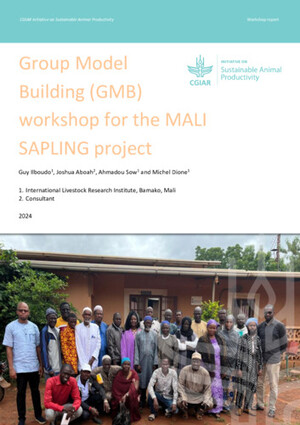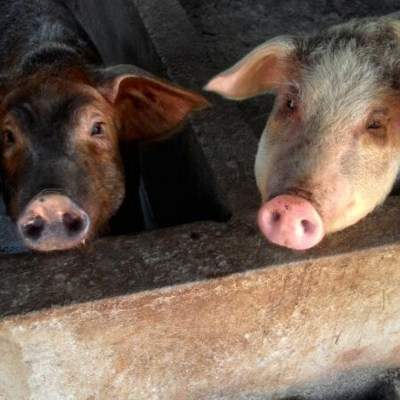
ILRI’s training program on analytical veterinary epidemiology to better control diseases in India
Scientists from the International Livestock Research Institute (ILRI) and the Indian Council of Agricultural Research (ICAR) have trained more than 20 researchers from ICAR’s institutes, state agricultural universities and state animal husbandry departments on epidemiology concepts, data analysis and different frameworks for risk analysis and risk management that could improve disease control and prevention in India.
The training was held 3-5 Dec 2018 and co-hosted by National Institute of Veterinary Epidemiology and Disease Informatics (ICAR-NIVEDI), Indian Veterinary Research Institute (ICAR-IVRI), and ILRI.
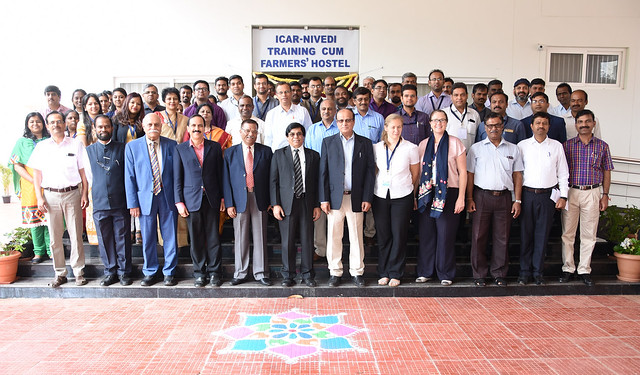
Group photo of the participants and other dignitaries (photo credit: ILRI).
During the inauguration, Habibar Rahman, ILRI’s regional representative for South Asia informed the participants that the training on analytical epidemiology would be organized around such factors as the multidisciplinary nature of epidemiology, recent developments in information technology and bio-informatics, the emergence of new diseases, climate change and multi-level analysis.
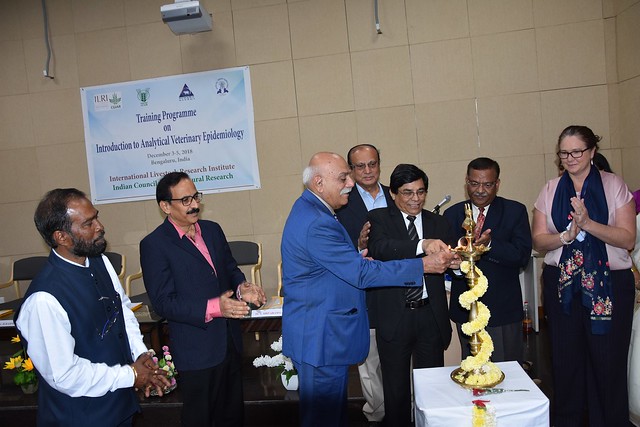
Lighting of the lamp to open the training by the dignitaries (photo credit: ILRI).
Johanna Lindahl and Elizabeth Cook, senior scientists at ILRI, and Sheik Shah Hossain, a former expert from the Center for Diseases Control and Prevention (CDC) also explained risk assessment tools that would be used for risk analysis, management and communication.
The chief guest, Reddihalli Narayanagowda Srinivasagowda, the former Vice Chancellor, Karnataka Veterinary, Animal and Fisheries Sciences University, said that epidemiology is a key tool in different disciplines of veterinary and animal sciences, which will help in designing the disease control strategies of India. He also encouraged the participants to augment their understanding about epidemiology through the training program.
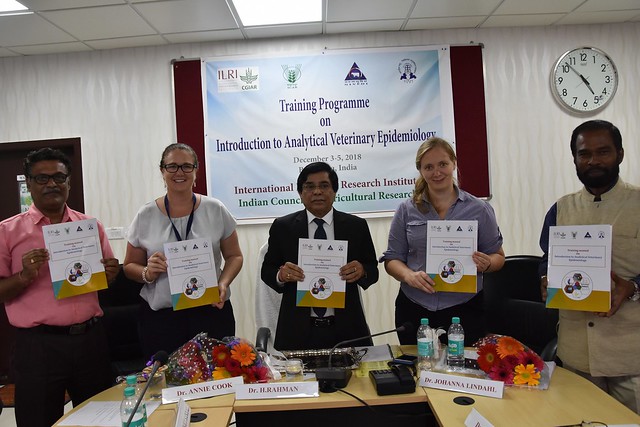
Release of the training manual (photo credit: ILRI).
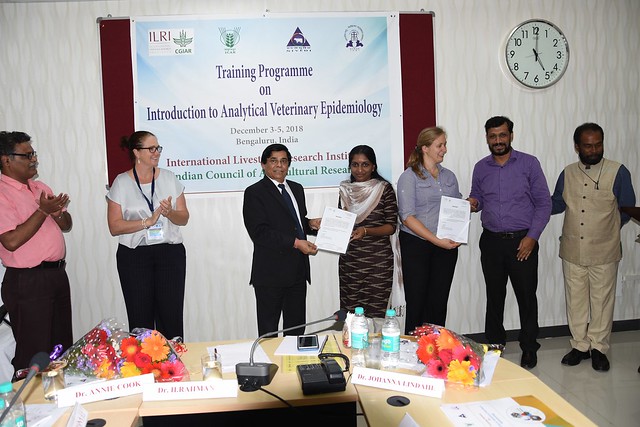
Distribution of certificates to the trainees (photo credit: ILRI).
The training used a manual designed by ILRI scientists with the help of local partners to address the needs of researchers in India in disease prevention and control. The trainees were awarded certificates after completing the training course.






